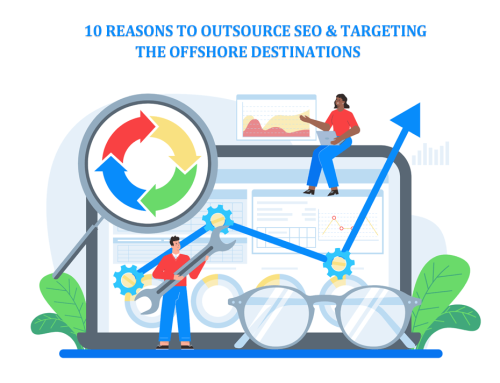How to start ecommerce business in Pakistan? Here’s the complete guide with multiple methods of starting ecommerce business with 0 investment.
Pakistan’s E-commerce Landscape: A Booming Frontier
If one has to define Pakistan at digital landscape, it would be about increasing mobile & internet penetration, increase use of smartphones and youth. With a media age of just 23 years, Pakistan’s youth is tech-savvy & in numbers. The perfect combination for a lucrative ecommerce business landscape.
Here’s some stats to back this point of view:
Growth of Ecommerce in Pakistan:
The market is flourishing rapidly, the projected revenue by e-commerce at the end of 2023 will be a whooping $8.08 billion. The annual growth rate stands at 5.7%. All this coupled with a youthful population who is embracing online shopping like crazy.
Key Players:
The ecommerce landscape in country is dominated by local players like Daraz & Yayvo. Although international players like Amazon are missing but local players have contributed a lot to the industry. Ali Baba has already tapped into Pakistani market by acquiring Daraz.
Popular Products:
Among the most popular product categories, Hobby & leisure take the center stage, followed by electronic & fashion securing the second spot. Categories like furniture, groceries & care products are also seeing impressive growth.
Challenges:
While most of the stats are promising, there’s some hurdles & challenges as well. The most significant challenge faced by ecommerce businesses in Pakistan is logistics & trust. Return orders are daunting growth for new entrants who do not have a strategy in place to optimize order delivery & logistics. However, major players like Daraz have successfully conquered the challenge.
Future:
The future looks very promising. The industry is expected to hit a mark of $10 billion by 2027.
This fact alone thrives you to start an e-commerce store right away. However, for anything to do in a better way, you need to adopt a proper procedure and find new and better ways. How to start an ecommerce business in Pakistan? The question is fairly short but requires a facts based answer. First of all let me tell you that, even though of heavy competition, you can still start an ecommerce store in Pakistan and make a number of sales. Now it gets us to a point to discuss whether setting up a store is necessary or not? So, let’s dive into it.
Read more: How to make money from TikTok in Pakistan
Setting up an e-commerce business, do I need a website?
Well, there are two ways to start an e-commerce business in Pakistan. The first way is to vet products or niche & start selling as wholesaler or vendor on other platforms. These platforms include selling on Daraz, Yayvo, HomeShopping. You can also start selling on social media platforms like Facebook and Instagram.
The second way is to vet products, deploy a complete e-commerce store and start selling your products. In this way, Daraz, Yayvo, and HomeShopping are going to be your competitors. However, think of the growth you can have if you are able to crush these stores. Think big to achieve big.
Top Ecommerce Platforms: A Rundown of WordPress, Shopify, and More
Choosing the right e-commerce platform is crucial for success in the online marketplace. Here’s a breakdown of four popular options, including WordPress, Shopify, and two additional contenders:
1. WordPress + WooCommerce:
- Strengths: Highly customizable, open-source platform, vast plugin library for additional features, budget-friendly (hosting fees apply).
- Weaknesses: Requires technical knowledge for setup and maintenance, not as beginner-friendly as dedicated platforms.
- Best for: Tech-savvy users, businesses selling unique products, those already with a WordPress website.
2. Shopify:
- Strengths: User-friendly interface, extensive app store for added functionality, reliable hosting and security, scalable for growth.
- Weaknesses: Monthly subscription fees, limited free plan, less customization compared to WordPress.
- Best for: Beginners, businesses with standard products, those prioritizing ease of use and scalability.
3. BigCommerce:
- Strengths: Powerful SEO tools, multi-channel selling capabilities, built-in B2B features, strong scalability for larger businesses.
- Weaknesses: Higher pricing than Shopify, less app store options, can be complex for complete beginners.
- Best for: Growing businesses with large product catalogs, businesses selling B2B, those needing advanced SEO and multi-channel features.
4. Wix:
- Strengths: Drag-and-drop website builder, beginner-friendly interface, affordable plans, built-in marketing tools.
- Weaknesses: Limited ecommerce features compared to dedicated platforms, less flexibility for complex stores, transaction fees on lower plans.
- Best for: Solopreneurs, small businesses with simple product offerings, those prioritizing ease of use and design.
Here’s a list of 20+ ecommerce tools that you will need to setup your ecommerce website regardless of the platform you choose.
Should I choose to become the wholesaler?
In my personal experience, I will suggest you to not do that. Rather, go on one step and deploy your own shopping store. It not only builds credibility for you as an online seller but also helps you make a good profit and a branded impression. Don’t worry about competition in search engines, if you have SERP Klicks e-commerce SEO services, you’ll have sales.
What are the products that you should sell?
The next and very important step to consider is vetting a product that has the potential to sell in the Pakistani market. Most of the entrepreneurs make this mistake of following the giants. Rather, you should carefully research the market and come up with a product that is unique as well as also serves a purpose or solves an issue. Keep in mind these steps while vetting a product for your e-commerce business.
- Make sure the audience is fairly broad.
- Make sure the product offers a solution to a problem.
- Make sure to set an attractive & competitive price.
- Finding a unique product is better.
What kind of products sell better online?
Now, this is very important as selecting the target market is very important. According to stats, these are the products that sell mostly on leading e-commerce stores in Pakistan.
- Smartphones
- Electronic appliances
- Mobile phone accessories, handsfree, headsets, & other mobile accessories
- Fashion, clothes & clothing accessories
- Makeup & cosmetic products for ladies
How to start ecommerce business in Pakistan with Daraz seller ship?
Another option for vendors or wholesalers is to get listed on Pakistan’s top shopping stores and start selling on their portals. Daraz is the largest shopping store in Pakistan with the most number of products. Luckily, you can start your shop on daraz for free of cost. Until you are making sales, you don’t have to pay daraz a penny. Rather, just need to pay a commission on the sale of your product.
However, there is not much profit you can earn selling on someone else’s store. Rather, set up your own store, hire an expert digital marketing agency in Lahore, Pakistan such as SERP Klicks and we will win you all digital spots where your customers are.
The secret to a successful e-commerce business:
“Digital is the age, digital should be you”, the aim of SERP Klicks where we make top brands. Our years of research and experience has lead us to a secret where we can help our customers grow exponentially. And we are not afraid to share it with you too. The secret is “Remarketing”. Digital marketing is a not just setting up social profiles, having a website, a few backlinks and a lesser number of sales. Digital marketing is where you can make a serious impact on your business. Fortunately, for entrepreneurs who want to start ecommerce business in Pakistan, we have this expert guide. And those who have started and looking for growth, try our “Remarketing” secret and we won’t let you down. For those who don’t know SEO scope in Pakistan? Read this article with amazing facts & figures.
Building a Strong Business Plan:
Defining business goals and objectives:
Defining your business goals and objectives is very crucial while starting any business. Here’s the break down of how you should define your goals & objectives while starting your ecommerce business.
Goals: Business goals are defined as broad, aspirational statements about what you want to achieve with your business in the long term. For example, “XYZ aspires to become the largest online retailer of toys in Lahore“.
To set your goals consider these questions:
Market position: Positioning your brand is very important before starting any business. Learn about brand positioning, if you don’t already have the idea.
Question: Do you want to be a dominant player in a specific niche, or a general e-commerce store catering to a broader audience?
Growth: Do you aim for rapid expansion and high revenue, or sustainable, moderate growth?
Impact: Do you want to solve a specific problem for Pakistani customers, or contribute to the overall e-commerce ecosystem?
Objectives: While goals are generic statements about business aspirations, objective are a measured steps to achieve your goals. Objectives are always SMART (Specific, Measurable, Achievable, Realistic, Time bound).
Grow brand awareness:
- Increase website traffic by X% within Y months through digital marketing campaigns.
- Secure X media mentions in relevant publications within Y months.
- Grow social media following by X% within Y months.
Increase sales:
- Increase conversion rate by X% within Y months through website optimization.
- Launch X new product lines within Y months.
- Expand to X new cities within Y months.
Build customer trust:
- Achieve a customer satisfaction rating of X% within Y months.
- Reduce order returns by X% within Y months.
- Implement efficient dispute resolution processes.
By crafting SMART goals and objectives, you’ll chart a clear roadmap for your Pakistani e-commerce business, navigate the dynamic landscape, and achieve long-term success.
Read more: Do i need SEO company or expert for my Ecommerce website?
Overview of popular payment gateways in Pakistan:
Pakistan’s booming e-commerce scene demands diverse payment solutions catering to different needs. Here’s an overview of popular options:
Mobile Wallets:
- EasyPaisa: Pakistan’s largest mobile wallet, widely accepted, user-friendly, offers instant payments and bill payments.
- JazzCash: Strong customer base, diverse features like international payments and QR code payments.
- FonePay: Easy and convenient payments powered by Mastercard, integrates with various platforms.
E-commerce Payment Gateways:
- Unumpay: Versatile solution supporting various payment methods, known for user-friendly interface and security.
- Paymob: Trusted solution with smooth integration and reliable processing, popular with small and medium businesses.
- Safepay: Secure gateway designed for online businesses, offers fraud protection and chargeback management.
- PayPro: Quick setup and efficient processing, good for businesses needing fast integration.
International Payment Gateways:
- XPay: Facilitates international payments and foreign currency transactions.
- Habib Bank Limited (HBL): Established bank offering online payment solutions for larger businesses.
- Alfalah Bank: Another major bank with an e-commerce payment gateway catering to various business sizes.
Other Options:
- Credit/Debit Cards: Visa, Mastercard, and UnionPay are accepted by many gateways and e-commerce platforms.
- Cash on Delivery (COD): Still dominant in Pakistan, though digital wallets are gaining ground.
Choosing the Right Gateway:
Consider these factors:
- Target audience: Which payment methods do your customers prefer?
- Business size and needs: Do you need international payments, fraud protection, or specific integrations?
- Transaction fees: Compare pricing structures and hidden charges.
- Security and reputation: Choose a reputable gateway with robust security measures.
Emerging Trends:
- Buy Now, Pay Later (BNPL): Gaining traction, catering to customers seeking flexible payment options.
Logistics and Order Fulfillment
Reliable Shipping and Delivery Services in Pakistan: A Comparative Overview
Pakistan’s growing e-commerce sector necessitates efficient and reliable shipping solutions. Here’s a breakdown of four prominent players, including M&P, Cheetay, and TCS:
1. M&P (Manual & Pak Services):
- Strengths: Extensive nationwide network, competitive rates, island-wide delivery reach, cash on delivery (COD) services, integrated with major marketplaces.
- Weaknesses: Can be slower than competitors in some areas, limited tracking options on basic packages, primarily focuses on business-to-business (B2B) deliveries.
- Best for: Businesses requiring bulk shipping, nationwide reach at competitive rates, and COD services.
2. Cheetay.com:
- Strengths: Fast and reliable delivery within major cities, focus on last-mile delivery, real-time tracking, convenient pickup and drop-off points, mobile app for user convenience.
- Weaknesses: Limited rural reach compared to M&P and TCS, higher rates for long-distance deliveries, primarily focuses on business-to-consumer (B2C) deliveries.
- Best for: Businesses targeting urban customers, requiring fast and reliable last-mile delivery in major cities, prioritizing user convenience through mobile app and tracking features.
3. TCS (Trans Cargo Service):
- Strengths: Extensive national and international network, robust infrastructure, reliable service, wide range of delivery options, integrated with major marketplaces.
- Weaknesses: Can be slightly more expensive than competitors, tracking system not always user-friendly, limited real-time updates.
- Best for: Businesses requiring international shipping, reliable delivery across Pakistan, and access to diverse service options like express delivery and COD.




